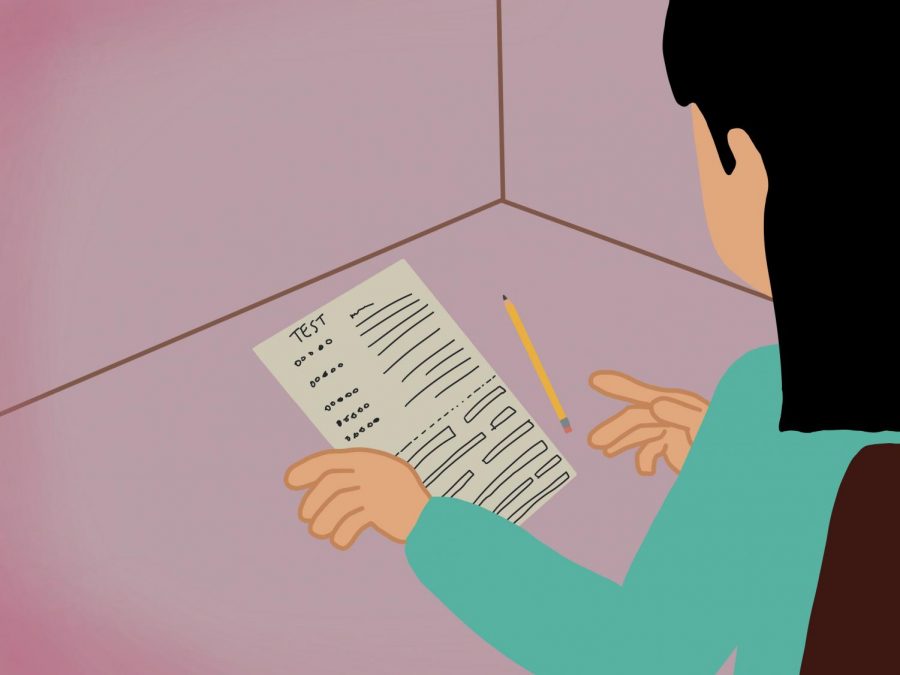Opinion: NYU should commit to test-optional applications
Universities and colleges have loosened their standard testing requirement for incoming students considering the impact of the pandemic. Such a test-optional policy, in fact, successfully promotes diversity in schools. (Staff Illustration by Manasa Gudavalli)
September 14, 2021
NYU instituted a test-optional policy for the 2021-22 application cycle earlier this year, acknowledging that in-person standardized testing has been nearly impossible during the pandemic. NYU’s pre-COVID application process followed a “flexible testing policy,” which allowed high school students to submit either their SAT score, ACT score, International Baccalaureate Diploma, three SAT Subject Tests scores, three Advanced Placement test scores, or other examinations specific to international students. However, NYU has followed the example of many other elite universities and decided to extend last year’s test-optional policy into this year’s application cycle.
Aside from helping stop the spread of COVID-19, a test-optional policy can also enable a more equitable and holistic application process. For those who do not have the privilege or opportunity to score well on standardized tests, the application process would be far more accessible. The SAT registration fee alone costs $55 and the ACT costs $60-$85. These prices do not account for the fact that high school students take these tests multiple times, costing hundreds of dollars in total. There are also plenty of resources for tutoring and preparatory courses that wealthier students can afford, allowing them to test higher than their less-wealthy counterparts do.
A test-optional application cycle means greater accessibility for low-income students. Greater accessibility would pave the way for more economic and racial diversity. In turn, a more diverse applicant pool would allow for a more representative student body — something NYU brags about, despite having reported only a 9% Black student population for the class of 2024.
Before the pandemic, schools such as the University of Chicago reportedly found success with their test-optional UChicago Empower Initiative, “an enhanced admissions process with increased financial aid and programming.” After the program’s first year, UChicago’s enrollment of first-generation and low-income students had increased 20% and the enrollment of rural students had grown 56%. In addition, enrollment of Black and Hispanic students also significantly increased.
The benefits of test-optional policies were also recorded in a 2021 Vanderbilt University study, which found a correlation between test-optional undergraduate admissions policies and more diversity in enrollment. The study examined almost 100 private universities that implemented test-optional policies for undergraduate admissions between the years 2005-06 and 2015-16. These policies were associated with a 3-4% increase in Pell Grant recipients, a 6-8% increase in first-generation female students, and a 10-12% increase in first-time students from underrepresented racial and ethnic backgrounds.
A permanent test-option policy is by no means the perfect solution to creating a more equitable application process at NYU, but it will benefit both NYU and its students. It has clear benefits and keeping the policy should be a serious consideration once we reenter the post-COVID world.
Contact Batoul Saleh at [email protected].
























































































































































